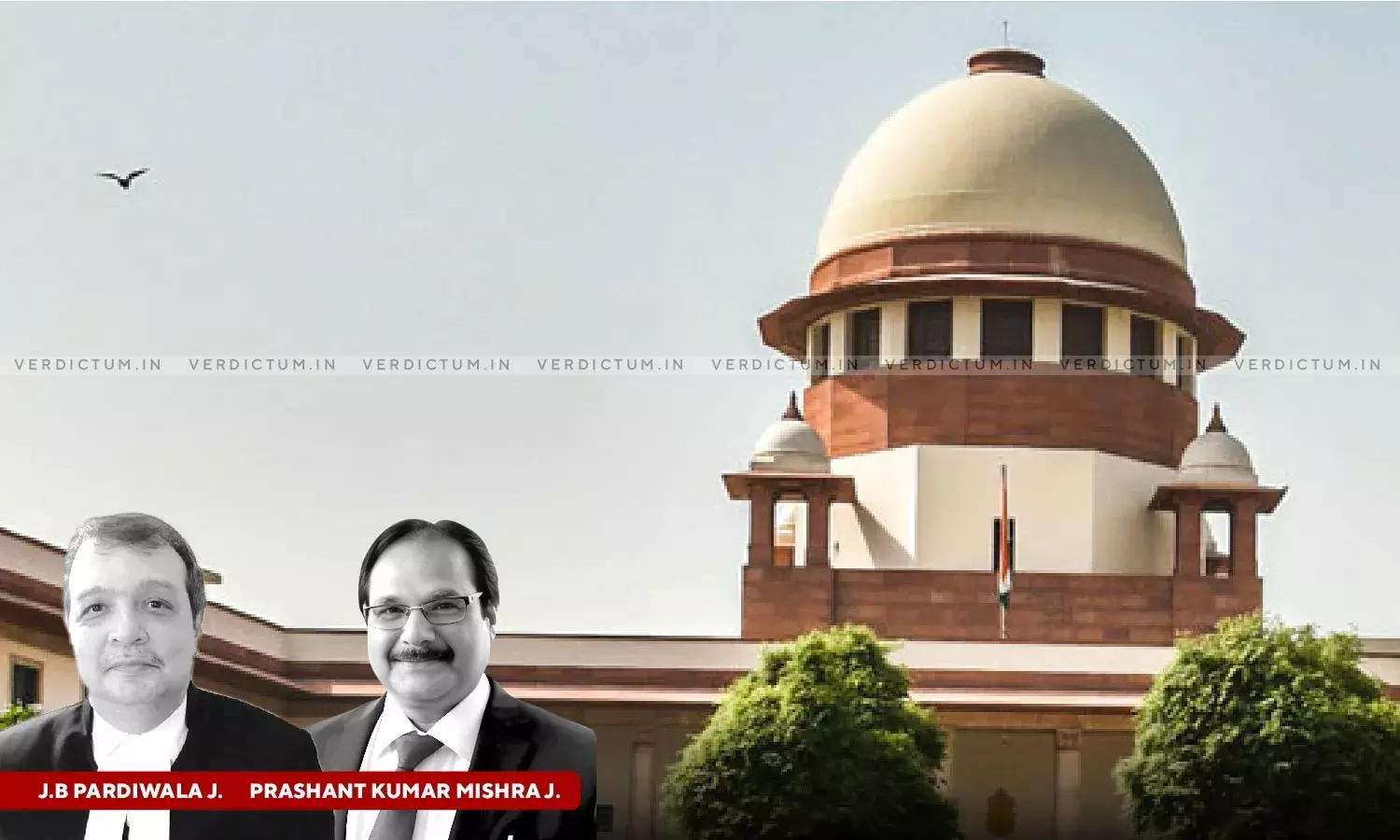Section 106 Evidence Act Does Not Inherently Impose Burden On Accused, Comes Into Play When Accused Fails To Provide Explanation About Facts They Should Know- SC
A Supreme Court Bench of Justice JB Pardiwala and Justice Prashant Kumar Mishra has observed that Section 106 of the Evidence Act does not inherently impose a burden on the accused but comes into play when the accused fails to provide any explanation regarding facts that should be within their knowledge, facts that could support theories compatible with their innocence.
In that context, it was said that, "Even where there are facts especially within the knowledge of the accused, which could throw a light upon his guilt or innocence, as the case may be, the accused is not bound to allege them or to prove them. But it is not as if the section is automatically inapplicable to the criminal trials, for, if that had been the case, the Legislature would certainly have so enacted. We consider the true rule to be that Section 106 does not cast any burden upon an accused in a criminal trial, but that, where the accused throws no light at all upon the facts which ought to be especially within his knowledge, and which could support any theory of hypothesis compatible with his innocence, the Court can also consider his failure to adduce any explanation".
Counsel Manisha Bhandari appeared for the appellant, while Counsel Jatinder Kuma Bhatia appeared for the State.
In this case, the Apex Court was hearing an appeal against a Judgment passed by the Uttarakhand High Court, which upheld the conviction of the appellant-husband under Section 302 and Section 498A of the IPC, and the mother-in-law under Section 498A of the IPC.
The deceased got married to the appellant-husband back in 1997. On June 2, 2007, the deceased's father filed an application with the Judicial Magistrate First Class, requesting the police to register an FIR regarding his daughter's death, which occurred under suspicious circumstances. Subsequently, an FIR was filed, charging the accused under various sections of the IPC related to murder and harassment, as well as sections of the Dowry Prohibition Act, 1961.
In the Trial Court, the husband was found guilty of murder and causing harassment under Section 498-A of the IPC and the mother-in-law was acquitted of the murder charge but convicted under Section 498-A IPC.
The appellants challenged this verdict in the High Court, but the High Court upheld the decision. Aggrieved, the appellants approached the Apex Court.
The Court observed that, "Section 106 of the Evidence Act would apply to cases where the prosecution could be said to have succeeded in proving facts from which a reasonable inference can be drawn regarding death. The presumption of fact is an inference as to the existence of one fact from the existence of some other facts, unless the truth of such inference is disproved."
Subsequently, the Cort took the considered view that it had been established to the satisfaction of the Court that the deceased was in company of her husband at a point of time when something went wrong with her health and therefore, in such circumstances the appellant-convict alone knew what happened to her until she was with him.
In light of the same, the Court held that there existed a prima facie case to enable the prosecution to invoke Section 106 of the Evidence Act and shift the burden on the accused husband to explain what had actually happened on the date his wife died.
In furtherance, the Court said that, "The role of courts in such circumstances assumes greater importance and it is expected that the courts would deal with such cases in a more realistic manner and not allow the criminals to escape on account of procedural technicalities, perfunctory investigation or insignificant lacunas in the evidence as otherwise the criminals would receive encouragement and the victims of crime would be totally discouraged by the crime going unpunished. The courts are expected to be sensitive in cases involving crime against women."
Resultantly, the appeals were dismissed.
Cause Title: Balvir Singh v. State of Uttarakhand
Click here to read/download the Judgment




